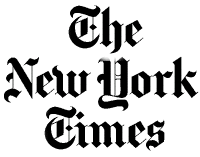 There’s a new article in the New York Times about self-publishing. Not as interesting as Time Magazine’s recent piece about self-publishing – and certainly not the first article in the Times about self-publishing – but piece by piece self-publishing is gaining clout. The article says,
There’s a new article in the New York Times about self-publishing. Not as interesting as Time Magazine’s recent piece about self-publishing – and certainly not the first article in the Times about self-publishing – but piece by piece self-publishing is gaining clout. The article says,
Vanity presses have existed for decades, but technology has made it much easier for aspiring authors to publish without hefty upfront costs. Gone are the days when self-publishing meant paying a printer to produce hundreds of copies that then languished in a garage.
This could be one of the things to further the cause of self-publishing. There’s an extra vanity in shelling out a lot of money to publish your own book – which has contributed to self-publishing’s poor stigma. Certainly, there are self-publishing outfits that charge a lot for the privilege, but these are balanced by free self-publishing platforms like Lulu that have as much to do with Web 2.0 media as with traditional vanity publishing.
The best thing in the Time article may be the statement that people have come to get used to user-generated content: Youtube, Wikipedia, blogs. Trouble is, those are all brand new mediums, whereas self-publishing has a stigma built up over centuries. But the new wave of self-publishing tools will eventually overshadow the former stigma.
A stigma that’s still widely prevalent. Check out the reaction on Gawker to the NY Times article:
How democratic! Just look at the veritable musical and cultural renaissance that’s emerged as a result of Myspace. Soon the self-architect and self-tightrope walker and self-haircut industries will take off as well, and we’ll never need entertainment again!
I don’t know, but to me this attitude towards self-publishing seems tired – holding on to last year’s snark. Times are changing. Thankfully a lot of the comments on the post take the article to task:
Right– cuz publishing the likes of Paris Hilton Nicole Richie and Plum Sykes (all bestsellers by the way) is such a crowning literary achievement.
It’s a pretty easy calculation. There’s crap put out my major publishers and good stuff as well. The same goes with self-publishing, no matter the ratio. If it’s good, it’s good, even if there are other books that dilute the field. In every medium there’s crap and there’s inspired work – self-publishing is no different.
Check out Frank Daniels’ piece on self-publishing and the shifting paradigm. He’s the exception to the rule – a self-published writer who got taken on by a major publisher – but if one writer can do it, many can, if the work warrants it. I’m not a writer who thinks self-publishing is superior to traditional publishing, because it’s enormously useful to get into Barnes and Noble, et al. But I’m also an advocate for self-publishing being a totally legitimate avenue. Hopefully these articles signify the beginning of a movement – chances are good.
Get an Editorial Review | Get Amazon Sales & Reviews | Get Edited | Get Beta Readers | Enter the SPR Book Awards | Other Marketing Services






















Leave A Comment